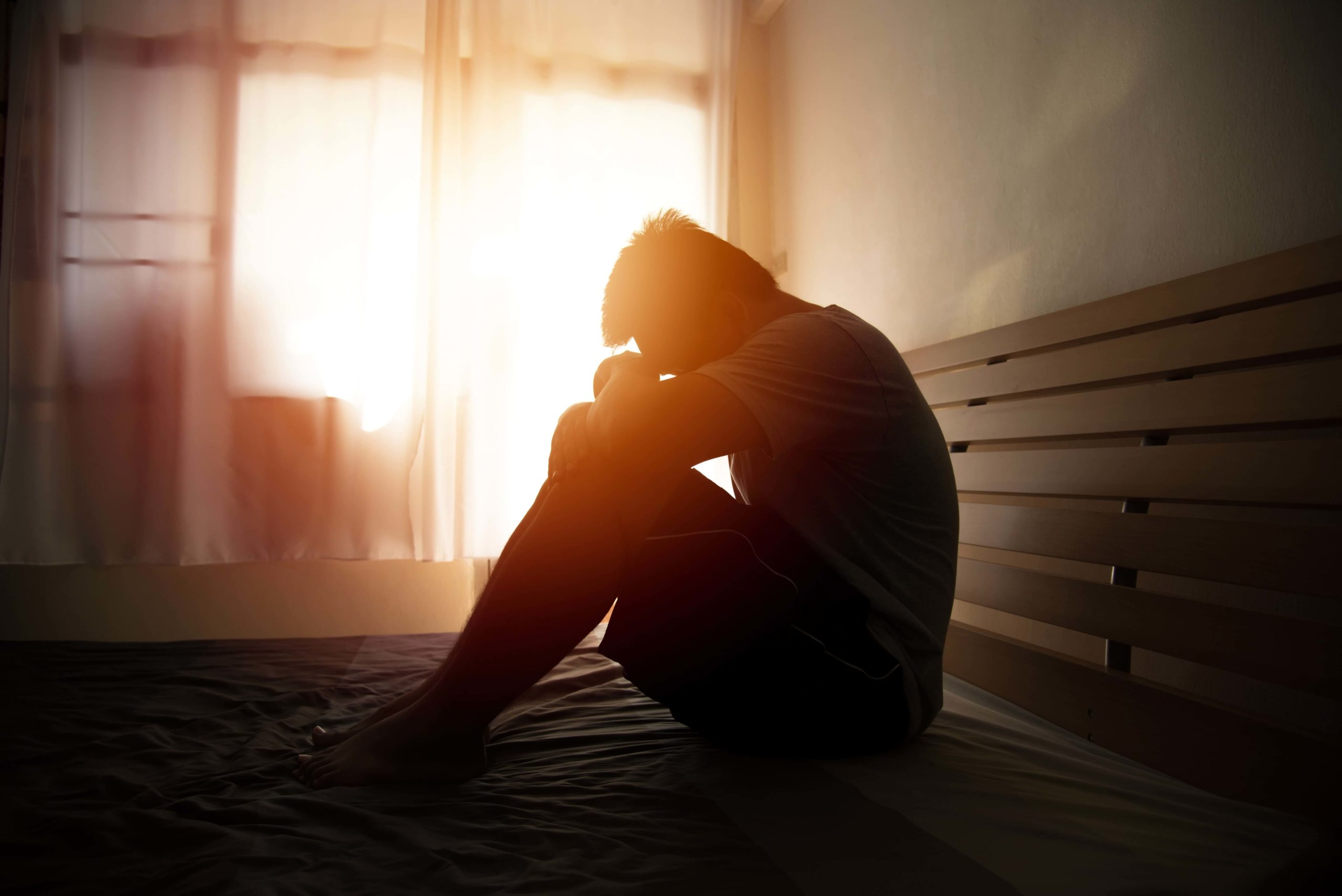Anxiety and depression are two different disorders, but both can dramatically affect how people live their lives. A certain level of anxiety is normal, but treatment may be needed when it develops into intense, excessive, and persistent worry and fear around everyday situations. Depression, by contrast, manifests as a constant feeling of sadness and loss of interest that interferes with day-to-day activities.
Can anxiety cause someone to experience depression?
Signs and Symptoms of Anxiety
There are several types of anxiety disorder, from generalized anxiety disorder to panic disorders to agoraphobia, a fear that leads people to avoid places or situations that might cause them to panic and feel trapped. Some of the common signs and symptoms of anxiety include:
- Feeling nervous, restless, or tense
- Having a sense of impending danger, panic, or doom
- Having an increased heart rate
- Breathing rapidly (hyperventilation)
- Sweating
- Trembling
- Feeling weak or tired
- Trouble concentrating or thinking beyond the present worry
- Having trouble sleeping
- Experiencing gastrointestinal (GI) problems
- Having difficulty controlling worry
- Having the urge to avoid things that trigger anxiety
According to the Anxiety & Depression Association of America (ADAA), more than 18% of the U.S. adult population has some form of anxiety disorder. That means anxiety affects 40 million people, making it the most common mental illness in the country.
Signs and Symptoms of Depression
Depression may happen only once or over the course of multiple episodes. When someone is in the midst of a depressive episode, they may experience some or all the following symptoms daily or almost daily:
- Feelings of sadness, tearfulness, emptiness, or hopelessness
- Angry outbursts, irritability or frustration, even over small matters
- Loss of interest or pleasure in most or all normal activities, such as sex, hobbies, or sports
- Sleep disturbances, including insomnia or sleeping too much
- Lack of energy and tiredness, making even small tasks require extra effort
- Changes in appetite, either increased cravings for food or loss of appetite and weight gain or loss
- Anxiety, agitation, or restlessness
- Slowed thinking, speaking, or body movements
- Feeling worthless or guilty, dwelling on past failures, self-blame
- Trouble thinking, concentrating, making decisions, and remembering things
- Frequent or recurrent thoughts of death, suicidal thoughts, suicide attempts, or suicide
- Unexplained physical problems, such as back pain or headaches
In 2020, the National Institute on Mental Health (NIMH) estimated that 21 million Americans, 18 and up, had experienced one major depressive episode. That equals more than 8% of U.S. adults.
The Link Between Anxiety and Depression
The ADAA shares that it is not uncommon for someone to have anxiety disorder and depression at the same time. In fact, they have found that almost half of people with a depression diagnosis also have an anxiety disorder. No clear link has been established to indicate that one condition causes or leads to the other, however.
Anxiety and depression share many of the same symptoms, including nervousness, irritability, and problems sleeping and concentrating. Despite this, they are different in how they manifest emotionally and behaviorally.
Luckily, both disorders can improve with treatment and lifestyle changes, such as:
- Psychological counseling (psychotherapy)
- Medications, such as antidepressants
- Lifestyle changes, like improved sleep habits, increased social support, use of stress-reduction techniques, regular exercise
- Avoiding alcohol, smoking, and recreational drugs
It is common for counseling and medications to be combined in treating both disorders.
What may connect anxiety and depression are the potential causes for both disorders. These causes include genetic factors, environmental factors, and physical and emotional pain. It is believed that genetics influence whether someone will have depression or anxiety in about 40% of people. Specific trauma or neglect, particularly in early childhood, can lead to someone developing depression or anxiety. Likewise, more recent stressors like relationship difficulties, unemployment, social isolation, and physical illness can increase someone’s odds of having anxiety and depression.
Finally, chronic pain can play a significant role in someone developing an anxiety disorder or depression. Research has indicated a biological link between pain, anxiety, and depression.
While research has not found a clear biological pathway from anxiety to depression, it’s not uncommon for someone to experience anxiety and then find themselves stuck in a repetitive cycle where they worry about a problem, feel bad because they can’t fix it, and subsequently become depressed. This loop allows anxiety to trigger limited depression for some.
As a licensed mental health and substance abuse intensive outpatient program (IOP) in Scottsdale, Arizona, we created Rising Phoenix to offer a safe, welcoming, and nurturing environment where clients are embraced, not judged, throughout their recovery process.

